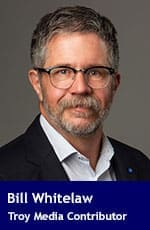 Here’s a project for my energy and social media colleagues. Let’s build a tool for Canadians to understand how important the oil and gas sector is to this country – and will be for decades. We can pass it on to Canadian politicians who need to upgrade their energy-related knowledge.
Here’s a project for my energy and social media colleagues. Let’s build a tool for Canadians to understand how important the oil and gas sector is to this country – and will be for decades. We can pass it on to Canadian politicians who need to upgrade their energy-related knowledge.
Assume that Canada was sent a job posting by a headhunter. It sought applicants for the world’s top oil and gas jurisdiction.
Sure sounds like an exciting role. We’re looking for qualified candidates to take a next-generation leadership role, to ensure global petroleum players have a leader with the right stuff to set future tone, focus and direction.
Some highlights from the position profile lay the groundwork. The successful candidate must demonstrate:
- An understanding that fossil fuels will continue to play an important role in future energy demand and economic sustainability; but is increasingly part of a strategic mix that ensures the environment’s welfare is in sharp focus.
- An understanding that fossil fuel producers must consistently push to lower carbon production and contribute to those goals throughout the life cycle from wells to wheels.
- An understanding of operational excellence, from technological innovation and ongoing investment to sustaining safety cultures and engaging Indigenous workforces.
- An understanding that social licence, while often an elusive concept, is increasingly important for effective community and stakeholder consultation and relationship nurturing.
- Respect for the reality that regulatory policy will increasingly ensure that all energy producers work within socially-mandated frameworks, with a focus on ensuring regulatory best practices guide energy producers.
If the sector – operators, service providers, regulators, post-secondary institutions, governments, et al – had to write a Canadian resumé and cover letter to match the points above, what would we say – and how would we say it? Proudly? Self-deprecatingly?
If we decided to apply, how would we go about crafting a compelling resume to get us to the interview process?
Once there for the first-round interview, what would we say? How would we dress? What list of questions would we ask our interviewer? How would we prep for the grilling that would undoubtedly be necessary to whittle down a field of top candidates?
How would we frame our experiences and competencies? How would we speak to important traits like character and integrity? How would we articulate our leader and team-player skills? How would we articulate our education as a sector? A technical undergrad degree of some kind? A graduate degree embedded in first-class applied and pure research?
Given all the advice available on how to build a winning resume, what strategies might we avail ourselves of to get to the next-stage shortlist?
Who would be our character references, to vouchsafe for our credentials and credibility?
In a typical winning application, one objective is to demonstrate progress over time. How would we frame this? What experiences and projects with measurable outcomes could we point to?
And there’s always this question: what would you do in your first 90 days? How would we answer that? What moves would we make to let the world know in no uncertain terms, we’re the sector and country for the position?
If you’re interested in helping craft this resumé, send your thoughts – say in 100-word notes – by email to [email protected]. Over the next few weeks, I’ll build them into a cohesive document build on the concept of a resume and cover letter. Once that’s complete, we’ll spread the word.
Bill Whitelaw is president and CEO at JuneWarren-Nickle’s Energy Group.
Bill is a Troy Media Thought Leader. Why aren’t you?
The views, opinions and positions expressed by columnists and contributors are the author’s alone. They do not inherently or expressly reflect the views, opinions and/or positions of our publication.

